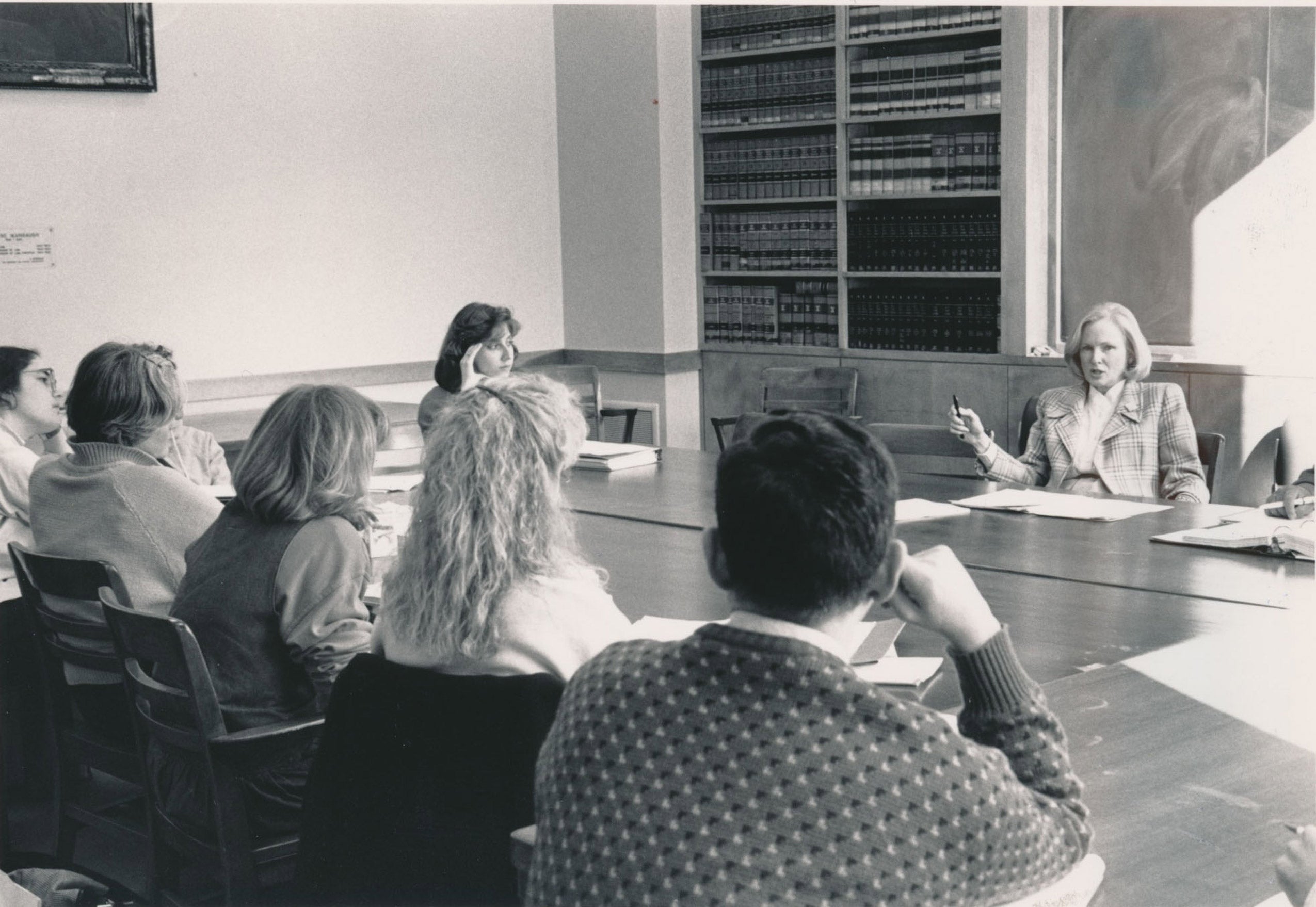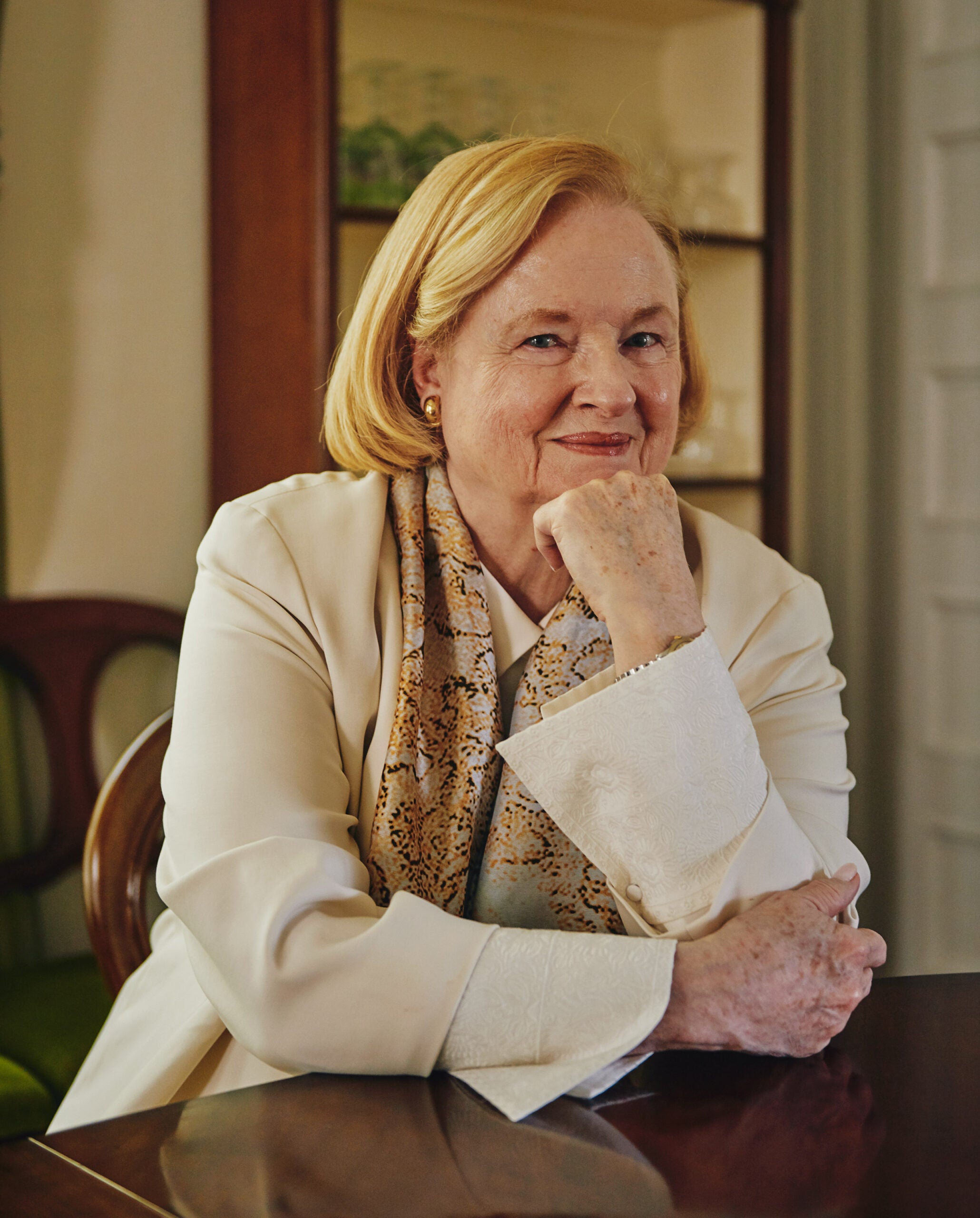I didn’t particularly like most of my first year of law school at Harvard. To be sure, there were challenging intellectual ideas for me to absorb and complicated legal puzzles to solve, some of my professors were brilliant and deeply committed to their students, and I had a terrific cohort of classmates in my section. But what was missing for me was any sense that this technically sophisticated exercise had any larger human purpose, that there was indeed a meaningful reason in all that toil and training. What was it all for, and was this really worth dedicating the rest of my life to? I had my doubts.
That uncertainty began to dissipate in the fall of my 2L year after I enrolled in Mary Ann Glendon’s seminar on Foundations of Western Legal Thought. I had little idea of what to expect from this professor who had just arrived at Harvard from Boston College the year before. But very quickly I began to realize that here was someone different from what I was used to. In Mary Ann I discovered a person who eagerly embraced the whole world through her study and teaching of law. She communicated an ideal that as students of the law, we were participants in a vast, complex and immensely important human enterprise. She embodied in her own life and generated in others a joy and a passion for what we studied together because it was valuable and relevant to our lives. At the same time, she was never naïve or utopian in this vision of the distinctive nobility and grandeur of law’s ideals. She never lost sight, with clear-eyed realism, of law as a sociological fact—subject to interests and powers—and of the fragility and flaws of every human undertaking.
She has lived intensely the aphorism … “I am a human being, and nothing human is alien to me.”
All of this made for a presence that I found intriguingly difficult to categorize—intellectually, politically and personally. And, indeed, it has always been impossible for others to pin on Mary Ann Glendon their preconceived labels; she is always more than you expect. This is certainly not because her life has lacked conviction or clarity or courage. On the contrary, she has played many strong roles as both a scholar and public servant, and taken on any number of deeply contested topics. Rather, I think her liveliness is born of a passion for all that is truly human. Throughout her life she has lived intensely the aphorism of the ancient Roman playwright and former slave Terentius: “I am a human being, and nothing human is alien to me.” It has made her constantly engaged in vigorous dialectic with the reality of the world around her, always seeking to test all things and to gather and retain whatever in them is good. This openness to all things human has also given her a singular capacity for dialogue across various ideological, cultural and religious divides that in our fractious times seems to be alarmingly rare.

Encountering and over time growing in familiarity with Mary Ann’s openness and her passion for the world, the law, and the life of the mind quite literally changed the direction of my life. I would not have been a professor, maybe not even a lawyer, without both her example and her constant friendship and accompaniment as I haltingly made my own way forward from HLS. And as I continue to travel that path, along the way I routinely meet others, of all different ages and interests and places, who also have been formed, inspired, and encouraged by their own encounters with Professor Glendon.
In the many of us whose lives she has touched she may have instilled above all her great love for constantly venturing forth to new ideas and places and then returning home again enriched with a different perspective. She has always been a comparatist at heart. On the occasion of a seminar held in honor of her 75th birthday, Mary Ann reflected on the “adventure” of her own life as a student of comparative law by invoking the motto of the French Société de Législation Comparée: “jus unum, lex multiplex, universa curiositas.” It is in the end an apt synthesis of the ideal that she has pursued and passed on through her life and her work: There is a universality to human experience that gives unity and purpose to law, justice, and rights (jus unum); but laws as expressed in social reality are diverse (lex multiplex), reflecting the concrete, contingent human lives in which we inescapably live and seek to realize our good; and we strive to bring the two into relationship with one another through the insatiability and dynamism of our human longing for knowledge (universa curiositas).
Paolo G. Carozza ’89 is professor of law and professor of political science at the University of Notre Dame and director of the school’s Kellogg Institute for International Studies.
***
